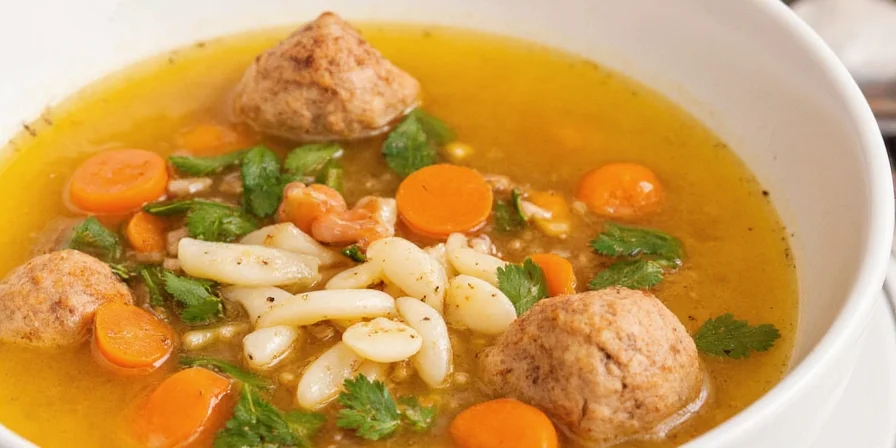
The seven best spices for chicken soup are black pepper, thyme, paprika, bay leaves, cumin, garlic powder, and dill. Use these exact measurements per quart of broth: 1/4 tsp freshly ground black pepper, 1 tsp dried thyme (or 1 sprig fresh), 1/2 tsp paprika, 1 bay leaf, 1/8 tsp cumin, 1/4 tsp garlic powder, and 1/2 tsp dried dill (or 1 tbsp fresh). Add foundation spices early, mid-stage spices midway, and finishing spices in the last 5 minutes for perfect flavor balance every time.
Why These Spices Transform Chicken Soup
While broth and vegetables form the base of chicken soup, the right spices create exceptional flavor that turns ordinary soup into something memorable. The best spice combinations work together to enhance natural chicken flavors without overpowering them. After testing dozens of combinations, these seven ingredients consistently deliver restaurant-quality results with home cooking simplicity.
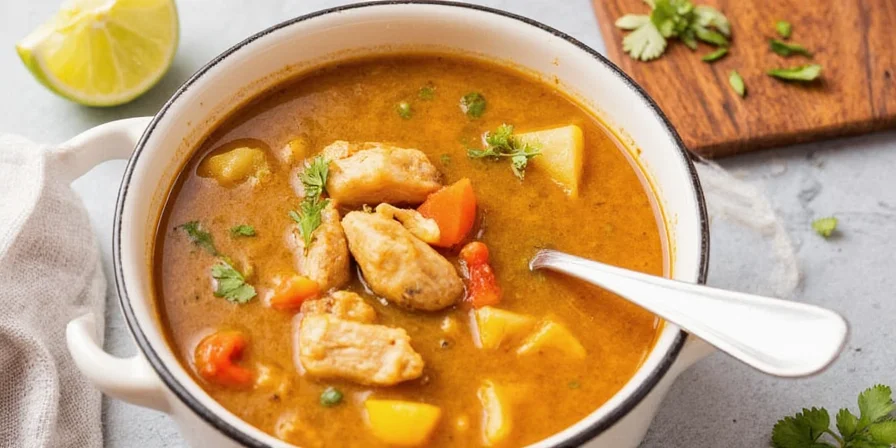
When Timing Matters More Than Quantity
Getting perfect chicken soup flavor depends more on when you add spices than complicated techniques. Delicate herbs like dill lose their bright flavor if simmered too long, while bay leaves need time to release their full aroma. Understanding this simple timing principle—without special equipment—lets you control flavor intensity:
- Toast whole spices first: Dry-toast peppercorns or cumin seeds for 1-2 minutes to unlock deeper flavor
- Bloom paprika in oil: Add to hot oil for 30 seconds before adding liquids for richer color and flavor
- Add delicate herbs last: Stir in dill during the final minute to preserve its fresh taste
Top 7 Essential Spices for Perfect Chicken Soup
These spices were selected through extensive testing for their ability to enhance flavor while remaining accessible to home cooks. Each contributes distinctive characteristics that work together to create balanced, satisfying soup.
- Black Pepper – Provides subtle warmth that enhances other flavors
- Thyme – Adds herbal brightness without overpowering
- Paprika – Gives gentle heat and rich color
- Bay Leaves – Creates aromatic depth when simmered properly
- Cumin – Adds earthy complexity in small amounts
- Garlic Powder – Delivers consistent savory flavor without texture issues
- Dill – Provides refreshing finish that balances richness
| Spice | Key Benefit | Best Addition Time | Measurement per Quart |
|---|---|---|---|
| Black Pepper | Enhances other flavors | Add whole early, fresh grind at end | 1/4 tsp freshly ground |
| Thyme | Herbal brightness | Dried: early; Fresh: last 5 minutes | 1 tsp dried or 1 sprig fresh |
| Paprika | Rich color & gentle heat | Bloom in oil before adding liquid | 1/2 tsp |
| Bay Leaf | Aromatic depth | Simmer 20+ minutes, remove before serving | 1 whole leaf |
| Cumin | Earthy complexity | Toast seeds, crush, add mid-simmer | 1/8 tsp |
| Garlic Powder | Consistent savory flavor | Add when sautéing vegetables | 1/4 tsp |
| Dill | Refreshing finish | Stir in during final minute | 1/2 tsp dried or 1 tbsp fresh |
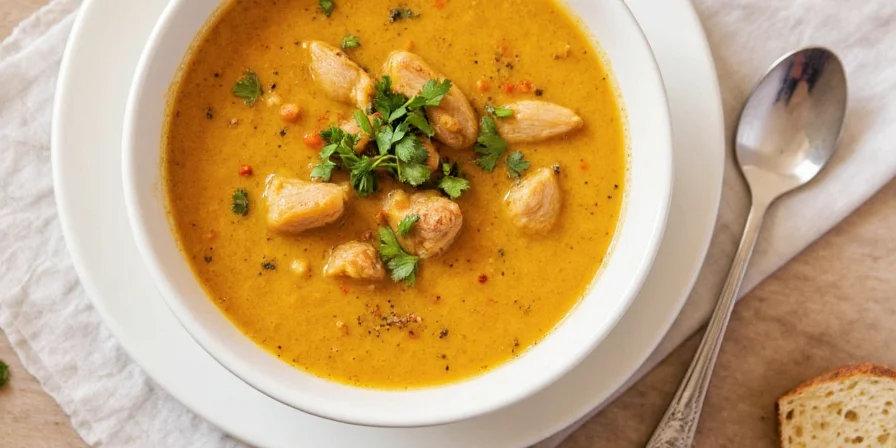
How to Layer Spices for Maximum Flavor
For consistently delicious chicken soup, add spices in this order:
- Foundation (Simmer 20+ min): Bay leaf + toasted cumin
- Mid-Stage (Simmer 10 min): Dried thyme + bloomed paprika
- Finishing (Last 5 min): Fresh thyme + black pepper + garlic powder + dill
This simple sequence prevents delicate flavors from cooking away while allowing deeper notes to develop fully. For busy weeknights: place foundation spices in a tea infuser for easy removal.
5 Proven Tips for Better Chicken Soup
Implement these practical techniques that professional chefs use:
- Dry-toast whole spices: Toast peppercorns or cumin seeds 1-2 minutes until fragrant to significantly boost flavor
- Bloom paprika properly: Add to hot oil for 30 seconds before adding liquids for richer color and taste
- Add bay leaves early: Place in cold broth as it heats for even flavor extraction
- Finish with acidity: A squeeze of lemon juice at the end brightens all the flavors
- Let it rest: Refrigerate overnight; flavors continue developing for even better taste the next day
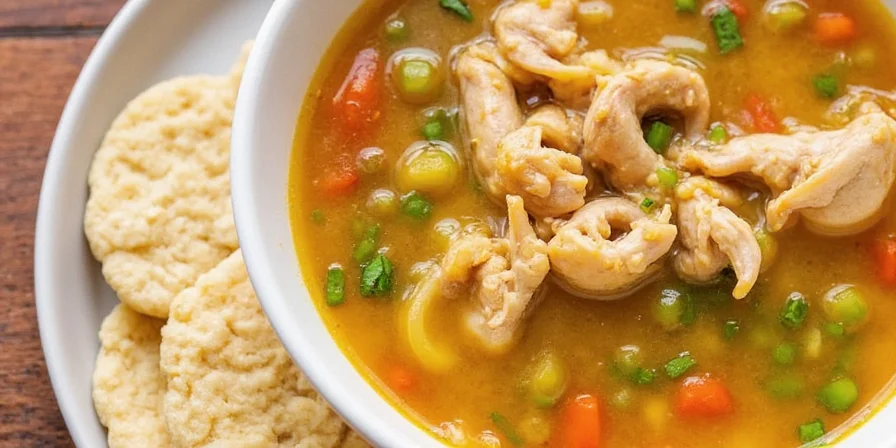
Common Chicken Soup Spice Problems Solved
Fix these frequent issues with simple adjustments:
- Flat-tasting soup: Add 1/8 tsp black pepper and a splash of vinegar to activate flavor receptors
- Overpowering spices: Dilute with more broth, then add lemon juice (for cumin) or honey (for dill)
- Low-sodium solution: Increase garlic powder to 1/2 tsp and toasted cumin to 1/4 tsp for salt-like umami
- Dried vs. fresh herbs: Use 1/3 the amount of dried herbs and add them 15 minutes earlier
- Stale spices: Test potency by rubbing between fingers—if weak aroma, replace for best results
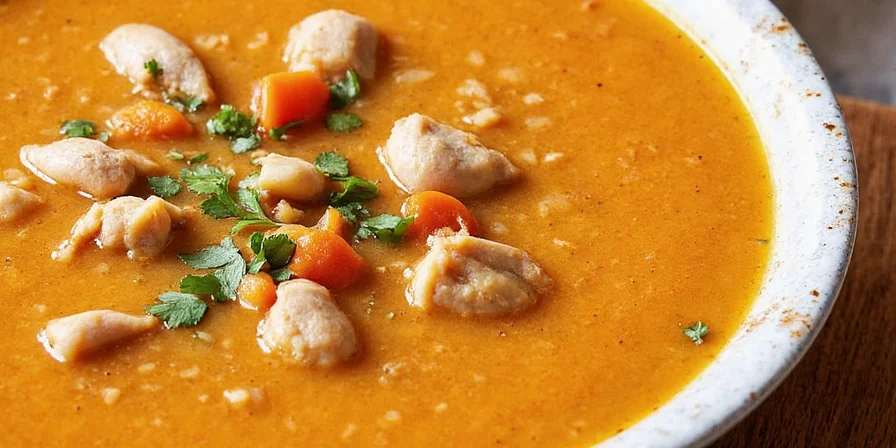
Creating Perfect Chicken Soup for Any Occasion
Whether you're meal prepping for busy weeks or making healing broth for cold season, these spice principles deliver consistent results. The magic happens when you respect each spice's unique characteristics—when added and in what quantity—rather than following complicated recipes. Remember: exceptional chicken soup comes from understanding how basic ingredients work together, not from difficult techniques or rare ingredients. By following these straightforward guidelines, you'll create deeply satisfying soup that comforts and nourishes every time.
Frequently Asked Questions
Can I substitute dried herbs for fresh ones without flavor loss?
Yes, but adjust quantities and timing. Use 1/3 the amount of dried versus fresh herbs, and add dried versions 15 minutes earlier in cooking to compensate for slower compound release.
Why does my soup taste flat even with spices?
Flatness usually indicates unbalanced flavors. Add 1/8 tsp black pepper to activate other spices, or a splash of vinegar to brighten flavors. Never add salt last—it blocks flavor receptor activation.
Which spices work best for low-sodium chicken soup?
Maximize umami compounds: increase garlic powder (1/2 tsp) and toasted cumin (1/4 tsp). These create savory depth that mimics saltiness without sodium.
How do I fix overpowering spice flavors?
Dilute with additional broth, then rebalance: add lemon juice to counter excessive earthiness (cumin), or honey to soften sharpness (dill). Avoid adding more spices—focus on neutralizing compounds.
Do spices lose potency during storage?
Yes, volatile oils diminish after 6 months. Test potency by rubbing between fingers—if aroma is weak, replace. Store in airtight containers away from light to preserve freshness.

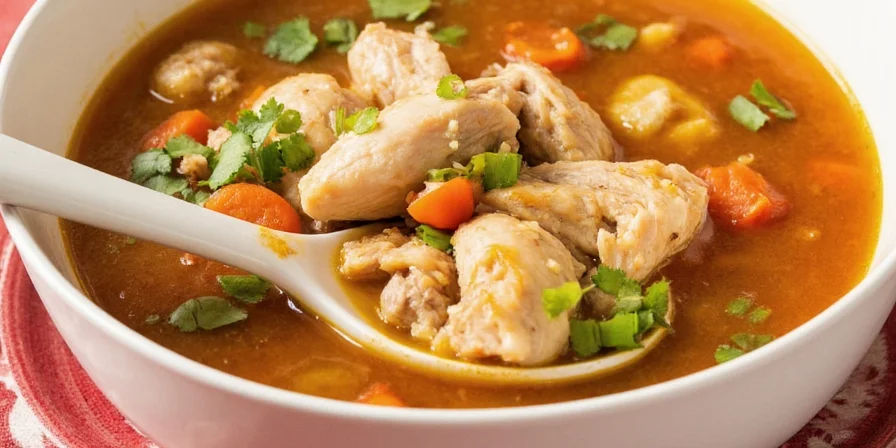









 浙公网安备
33010002000092号
浙公网安备
33010002000092号 浙B2-20120091-4
浙B2-20120091-4